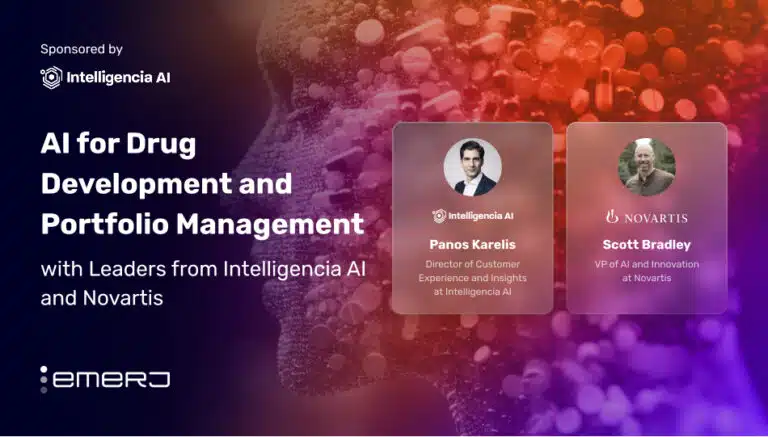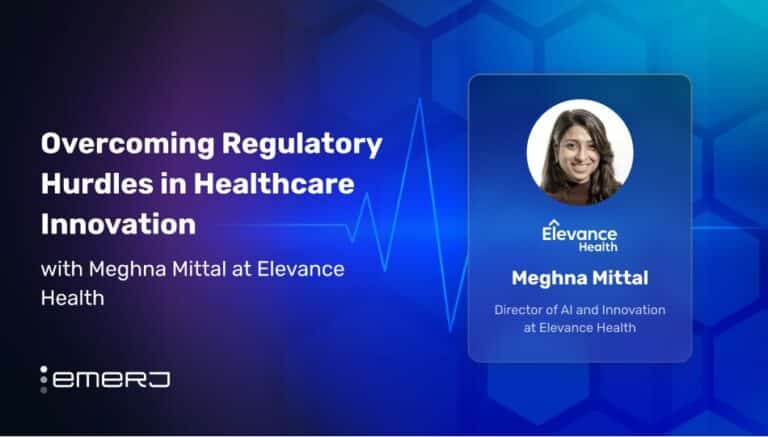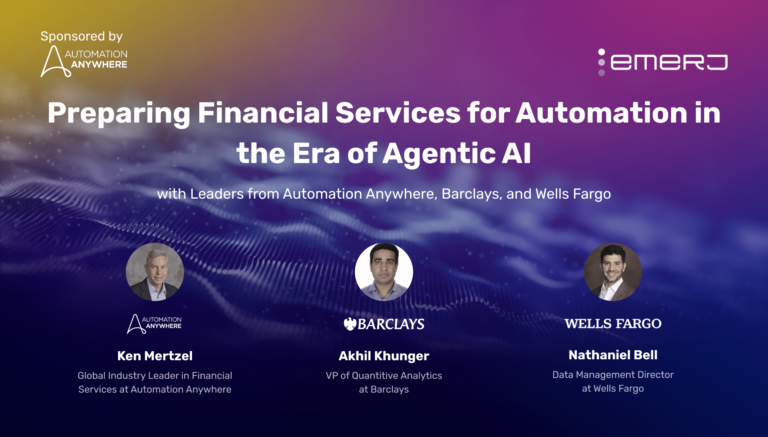Mobile technology, including smartphones and wearable devices, collects health-related data such as physical activity metrics (e.g., step counts, heart rate), sleep patterns, and self-reported health information through surveys and applications.
A 2022 research paper from Stanford University shows how these data enable AI systems to monitor health trends, predict potential health issues, and personalize healthcare interventions, enhancing patient outcomes and promoting proactive health management.
More research from Harvard, published in Nature, highlights that integrating data from mobile health technologies with AI enables the development of personalized healthcare solutions tailored to individual patient needs. AI algorithms analyze this data to predict health risks, recommend preventive measures, and customize treatment plans, enhancing patient outcomes and engagement.
Emerj Senior Editor Matthew DeMello recently spoke with Ylan Kazi of Blue Cross Blue Shield. They explored the role of AI and mobile technology in personalizing healthcare, enhancing patient engagement, and empowering patients to manage their health more proactively.
They also discuss the growing demand for real-time data, targeted AI applications, and the need for innovation to overcome regulatory challenges in the healthcare industry.
- Maximize mobile tech to revolutionize diagnostics: Smartphone data can be used to gather real-time patient insights, improving care coordination, decision-making, and clinical outcomes.
- Targeted applications for maximum healthcare impact: Shaping AI use cases into targeted solutions that enhance patient engagement, streamline communication, and deliver measurable value with a focus on proper testing and data accessibility.
Listen to the full episode below:
Guest: Ylan Kazi, Chief Data and AI Officer, Blue Cross Blue Shield North Dakota
Expertise: Artificial Intelligence, Data Analytics, Healthcare
Brief Recognition: Ylan Kazi is the Chief Data and AI Officer for Blue Cross Blue Shield North Dakota. He spearheaded the company’s first enterprise-wide data strategy and launched AI-driven initiatives, generating millions in cost savings and operational efficiencies. Prior to this, he worked with Bridgewater Partners, Children’s Mercy Kansas City, and UnitedHealth Group. Ylan holds a Master’s in Healthcare Administration from the University of Minnesota.
Maximize Mobile Tech to Revolutionize Diagnostics
Ylan opens the podcast by emphasizing the need for personalized medicine. He questions why standardized drug dosages don’t account for individual differences like body size or genetics. He sees future opportunities in tailoring treatments based on genetic data, which could enhance efficacy and safety.
While Ylan also finds AI developments in the pharma space exciting, as they promise to make drug discovery faster, more efficient, and more personalized, he begins his point on diagnostics citing a few challenges. These challenges, even more than most regulated industries like healthcare, can be difficult to distinguish from data-driven opportunities.
First, he highlights how mobile technology has transformed healthcare by expanding access to diagnostic tools beyond traditional clinical settings. He points out that, until recently, being a patient was primarily associated with visiting a hospital or clinic.
However, with the rapid advancements in mobile technology, smartphones have become powerful healthcare tools equipped with sensors, voice recognition, and navigation capabilities.
These features enable phones to function as diagnostic tools, collecting valuable health data. Ylan suggests that physicians and nurses with access to this real-time data could provide a more comprehensive patient profile, leading to better-informed clinical decisions and improved patient care.
However, Ylan insists that the core takeaway for healthcare leaders is that the same mobile technology — GPS systems and personal biodata from personal devices — is at the core of developments we see in manufacturing and insurance-adjacent divisions of the typical healthcare enterprise.
For instance, he cites how AI is impacting the healthcare supply chain, particularly on the provider and delivery side, while also playing a crucial role in streamlining the payer side, specifically in healthcare claims processing. He further explains that claims processing is complex, involving payment integrity and ensuring that services are paid accurately and on time.
Due to this complexity, many organizations still rely on manual reviews by experts, but AI is helping automate these processes, reducing inefficiencies. By improving accuracy and speeding up claims handling, mobile data-driven AI can ultimately enhance the overall healthcare experience for both patients and providers if healthcare leaders harness it with the right technology.
Targeted AI for Maximum Healthcare Impact
Ylan acknowledges that AI was once seen as a catch-all solution, but many implementations failed to deliver the expected results. Now, AI vendors and partners are taking a more targeted approach, focusing on specific healthcare areas or use cases where AI can drive significant cost savings and measurable value.
He sees an opportunity for AI, like ChatGPT, to improve patient engagement and streamline healthcare communication. He highlights how the current system is often disjointed — patients visit doctors, receive lab tests, and get results at different times through various channels, leading to inefficiencies.
He shares a personal example of receiving lab results online from a vendor nearly two weeks before his doctor’s office sent a paper copy, illustrating delays in communication. He believes AI could help coordinate the entire patient journey, ensuring smoother interactions between providers, labs, and patients.
However, he also acknowledges the need for caution, proper testing, and understanding AI’s limitations. Ultimately, he sees AI as a tool that could empower individuals to manage their health more proactively rather than relying on healthcare organizations that often act as gatekeepers to their own data.
Ylan believes that meaningful innovation in healthcare data will come from external forces rather than within the industry. He attributes this to the stringent regulations surrounding data privacy and security, particularly at the hospital level, which makes it challenging to implement transformative changes.
“When you want to innovate around data, especially in a hospital setting. But when I look at the overall direction that the world is going, and I think about just a general consumer experience, when you purchase something through Amazon, you know exactly when your package is going to get to you, what you’ve ordered; you can look back at your past history — it’s pretty seamless.
More and more people are starting to want that with their own healthcare data. And so I think we’ll get to a point where enough people are demanding it, that it’s going to create more of that pressure for hospitals to change how they think about securing and protecting data while also balancing the fact that this is individual patient data.”
–Ylan Kazi, Chief Data and AI Officer at Blue Cross Blue Shield North Dakota

















